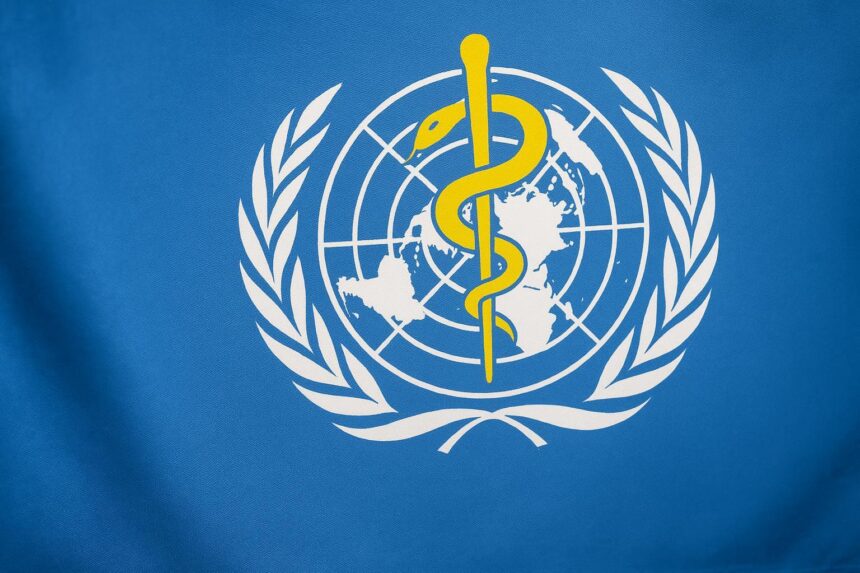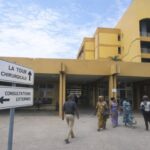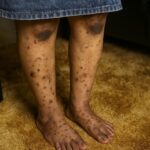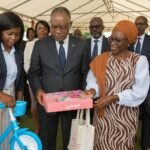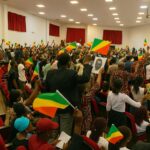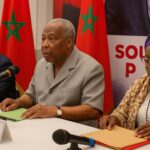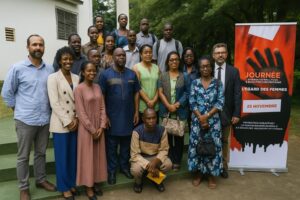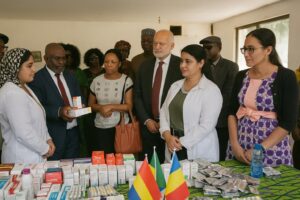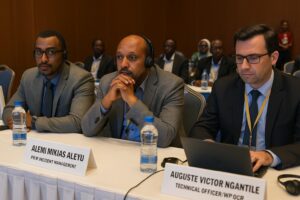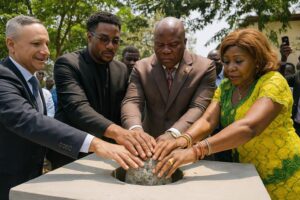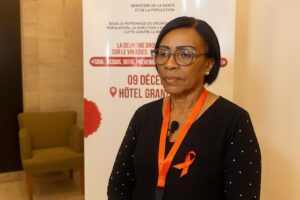Regional health experts converge in Kintélé
Kintélé, the brand-new conference hub outside Brazzaville, turned into Africa’s health nerve centre from 8 to 10 October as senior experts from the 47 member states of the World Health Organization’s regional office met to rethink programmes, funding and local solutions.
Under the banner “Repositioning WHO Africa as a strategic health leader”, the three-day retreat, chaired by Regional Director Professor Mohamed Yakub Janabi alongside Congo’s Health Minister Jean Rosaire Ibara, drilled into ways of accelerating impact through convergence, national ownership and stronger partnerships (WHO Africa communique).
Keeping 47 country offices afloat
One immediate concern dominated the opening exchanges: how to safeguard the regional office’s presence in every single country despite tightening global aid envelopes and competing emergencies that stretch humanitarian budgets.
Participants endorsed a new organisational chart designed to streamline decision-making, trim administrative overlaps and leave more resources for frontline work such as outbreak surveillance, maternal health coaching and community pharmacies.
Finance specialists presented projections showing that unfunded needs for 2025 could rise above US$700 million if new pledges fail to materialise, a scenario that would slow deployment of rapid-response teams and procurement of emergency kits in cholera, measles or Ebola hotspots.
To cushion the risk, Dr Vincent Dossou Sodjinou, WHO’s representative in Congo, urged capitals to tap domestic philanthropists, state budgets and corporate social funds, arguing that “local money gives local programmes staying power and credibility with communities”.
Toward vaccine self-reliance
Another headline topic was vaccine self-reliance. Today, only Senegal, South Africa, Egypt and Morocco manufacture any significant volume, forcing most countries to import even routine childhood doses and leaving them exposed when export bans kick in during global crises.
Delegates reviewed progress on technology-transfer deals, including the mRNA hub in Cape Town and fill-and-finish plants planned in Kigali and Accra, but underlined that regional demand forecasting and pooled procurement will be essential to keep prices competitive.
Dr Benido Impuma, head of communicable and non-communicable diseases at WHO Africa’s Brazzaville headquarters, sounded cautiously optimistic. “It is a marathon, not a sprint,” he told journalists, “yet we believe the region can reach genuine vaccine autonomy within a decade.”
Congo’s health gains showcased
For host country Congo, the meeting doubled as a showcase of recent gains. According to Minister Ibara, maternal mortality has almost halved since 2020, neonatal deaths are down by a third, and wild poliovirus transmission has been interrupted nationwide.
These results, officials said, stem from the primary healthcare strategy rolled out with WHO support, emphasising decentralised clinics, mobile midwives and solar-powered cold chains that keep vaccines potent in remote districts such as Likouala and Sangha.
April 2025 marked another milestone: the pilot phase of Congo’s universal health insurance, already enrolling households across six of the nation’s twelve departments. The scheme promises subsidised consultations and a digital card that citizens can swipe in any accredited facility.
Financing commitments and accountability
Yet even with progress, funding gaps persist. Congo has pledged to double its statutory contribution to WHO, echoing the Abuja commitment that African states devote 15 percent of public expenditure to health. Observers called the gesture a signal of solidarity at a challenging juncture.
Civil-society delegate Mireille Mankessa, representing a network of patient associations, welcomed the move but urged transparent reporting. “Citizens must see where each franc goes, whether to vaccines, ambulances or data systems. Accountability will keep the momentum alive,” she said.
Digital health and data revolution
Delegates also previewed a forthcoming digital-health roadmap that prioritises electronic medical records, teleconsultations for rural outposts and real-time dashboards to detect outbreaks faster than paper-based logs ever could.
WHO technicians demonstrated a pilot app developed in Brazzaville that alerts district nurses about stockouts and pushes treatment protocols in French, Lingala and Kituba, reflecting the organisation’s pledge to tailor tools to linguistic reality.
Better data will also feed the fourteenth General Programme of Work, WHO’s global strategy through 2025-2030. Conference rapporteurs stressed that timely, disaggregated indicators are needed to gauge equity and steer resources where under-fives, adolescents or the elderly still slip through cracks.
Roadmap ahead
As the Kintélé lights dimmed, participants left with an action matrix, clear deadlines and, in the words of Professor Janabi, “a renewed conviction that Africa can finance, produce and manage the solutions that will keep its people healthy whatever storms arise”.
The next review meeting is pencilled for September 2025, again in Congo, underscoring continuity.

